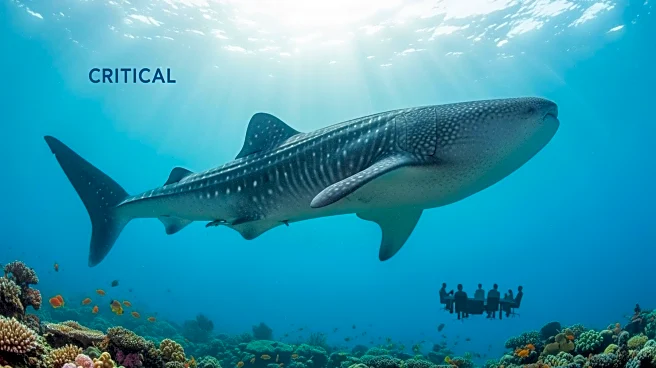What's Happening?
A whale shark, recently seen off the Mediterranean coast of Israel, has been killed in Gaza. Videos on social media show crowds in Khan Younis pulling the large fish ashore and reportedly butchering it for food. The whale shark had attracted attention
in Israel due to its rarity and size, as these creatures can grow up to 14 meters long and live for over a century. The incident has sparked discussions about marine conservation and the treatment of endangered species.
Why It's Important?
The killing of the whale shark highlights ongoing challenges in marine conservation, particularly in regions with limited resources and differing cultural practices. Whale sharks are classified as endangered, and their loss can impact marine ecosystems where they play a role in maintaining the balance of marine life. This event may influence international conservation efforts and policies aimed at protecting endangered species, emphasizing the need for cross-border cooperation in marine conservation.
What's Next?
The incident may lead to increased advocacy for marine conservation in the region, with potential calls for stricter regulations on the treatment of endangered species. Environmental groups might push for educational campaigns to raise awareness about the importance of preserving marine biodiversity. Additionally, international organizations could engage with local authorities to develop sustainable practices that protect marine life while respecting cultural traditions.
Beyond the Headlines
The event raises ethical questions about the intersection of cultural practices and conservation efforts. It highlights the need for dialogue between conservationists and local communities to find solutions that respect cultural norms while protecting endangered species. Long-term, this incident could influence global perceptions of marine conservation, encouraging more inclusive and culturally sensitive approaches.
















